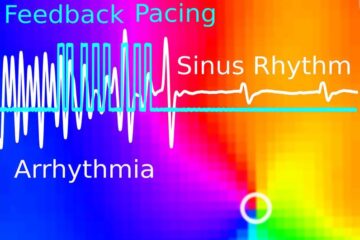Mutant gene identified as villain in hardening of the arteries

The researchers found that mice engineered without the Akt1 gene and fed a high cholesterol diet had many more signs of aortic atherosclerosis compared to their littermates. And, surprisingly, their coronary lesions were similar to humans, say the scientists.
“About 20 percent of the mice died spontaneously, perhaps due to an acute heart attack,” said William Sessa, senior author of the study, professor of pharmacology, and director of Yale’s vascular biology and therapeutics program.
Atherosclerosis is a chronic inflammatory response in arterial walls, in large part due to deposits of lipoproteins—which are plasma proteins that carry cholesterol and triglycerides. The “hardening” or “furring” of the arteries is caused by plaque formation.
In the vascular wall, Akt plays an important role in regulating the development of endothelial cells, which line the entire circulatory system, from the heart to the smallest capillary. Endothelial cells play an important role in regulating blood pressure, in blood clotting, in plaque formation in the arteries, and in formation of new blood vessels.
“The major finding of this study is that an absence of Akt1 aggravates atherosclerotic lesions, promotes coronary atherosclerosis, and may be a model of acute coronary syndromes,” Sessa said. “Specific activation of Akt1 may provide a therapeutic approach to decrease formation of lesions in the arterial wall and promote plaque stabilization to prevent an acute heart attack.”
One concern, he said, is that specific drugs are being developed to inhibit Akt in cancer patients to reduce progression of tumors, and that these drugs may also promote hardening of the arteries.
Media Contact
More Information:
http://www.yale.eduAll latest news from the category: Life Sciences and Chemistry
Articles and reports from the Life Sciences and chemistry area deal with applied and basic research into modern biology, chemistry and human medicine.
Valuable information can be found on a range of life sciences fields including bacteriology, biochemistry, bionics, bioinformatics, biophysics, biotechnology, genetics, geobotany, human biology, marine biology, microbiology, molecular biology, cellular biology, zoology, bioinorganic chemistry, microchemistry and environmental chemistry.
Newest articles

Wildfire danger to increase due to climate change
WSL Institute for Snow and Avalanche Research (SLF) researchers expect an elevated wildfire danger in the Alpine Foreland from 2040 onwards due to changing meteorological conditions. The danger currently remains…

Advanced Brain Science Without Coding Expertise
Researchers at Helmholtz Munich and the LMU University Hospital Munich introduce DELiVR, offering a new AI-based approach to the complex task of brain cell mapping. The deep learning tool democratizes…

Gentle defibrillation for the heart
Using light pulses as a model for electrical defibrillation, Göttingen scientists developed a method to assess and modulate the heart function. The research team from the Max Planck Institute for…





















